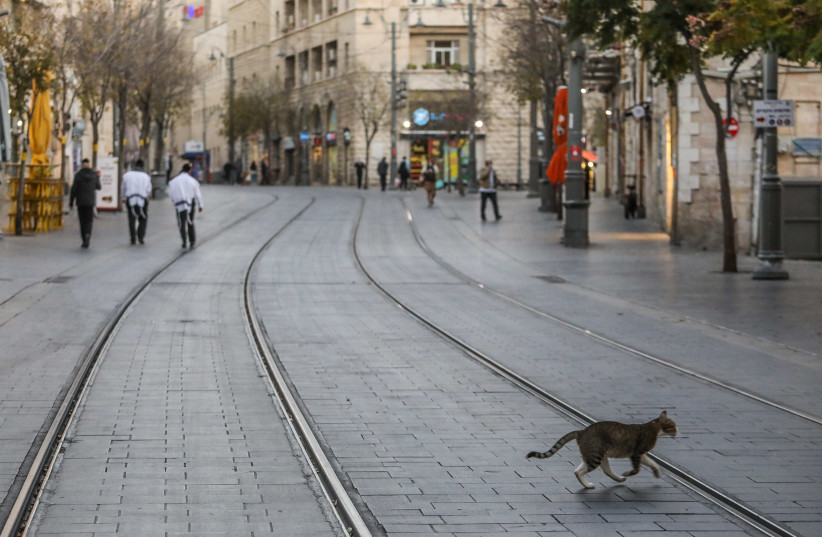Tel Aviv on Friday would usually be a bustling city, with people crowding the beaches, and enjoying food at the plethora of restaurants that line boulevards such as Bograshov and Dizengoff. However these days it feels quiet and empty. Many shops and restaurants are closed. I drove to Tel Aviv on Friday to attend the joint press conference by US Secretary of Defense Lloyd Austin and Israel’s Minister of Defense Yoav Gallant. The drive from Jerusalem was along the usually busy Route 1, which snakes down from Jerusalem through forested hills into the coastal plains of Israel.
Tel Aviv is not the only city that feels this way. Jerusalem also feels like a ghost town, as I noted earlier this week. Jerusalem and Tel Aviv have usually felt like world’s apart. Jerusalem is more diverse and divided, with a large Arab and ultra-Orthodox population. Beyond being more religious, Jerusalem is also the capital of Israel, with government ministries and politicians. It tends to be more on edge than Tel Aviv, with more police and more security. It sits on an invisible fault line that runs between Israel and the Palestinian areas of the West Bank. East Jerusalem may be part of the Jerusalem, but it is oriented towards Ramallah and Hebron.
Tel Aviv is the hi-tech and business capital of Israel. It is also where most foreign embassies are located. It has a vibrant beach community and on most days people can be seen walking dogs, playing volleyball or surfing along the shore. However, the brutal war and rocket fire from Gaza, which has now reached more than 5,000 rockets fired, has affected Tel Aviv.
The whole of Israel feels quiet like this, in mourning for the 1,300 massacred on October 7, as well as waiting for news of more of the victims being identified. Many people may know more than one person killed or kidnapped. The lack of knowledge about the identities of those kidnapped and missing also leads to uncertainty. This uncertainty hangs over Tel Aviv and Jerusalem.

Unprecedented quiet in Israel
The drive to Tel Aviv from Jerusalem served as a prelude to what Tel Aviv would be like. With the roads to the city mostly empty of cars, it was clear that there wouldn’t be many people around. At DIzengoff Center, the shopping mall was also mostly deserted. This was not just preparation for closing for Shabbat, it was also a more general theme. Some stores that were open lacked a full staff. A week into the war Israel has been plunged into an unprecedented quiet. With kids off school, most families are staying home. Many playgrounds are empty. In all conflicts there is an initial shock with people glued to their televisions. However, the size of the massacre on October 7 has brought unprecedented trauma. This is clear in Israel’s largest cities.
...
